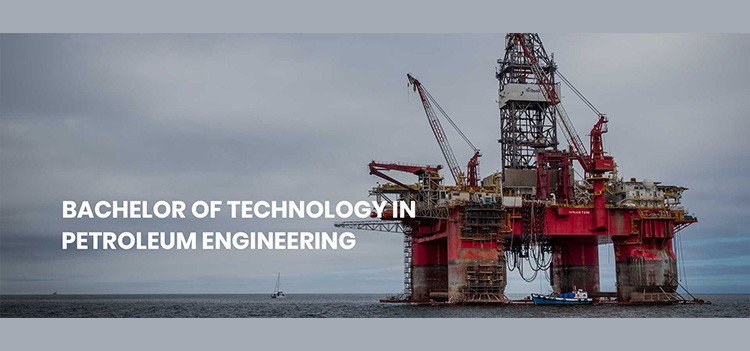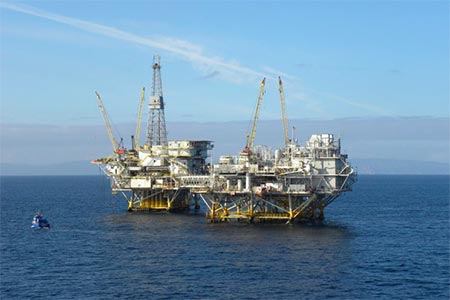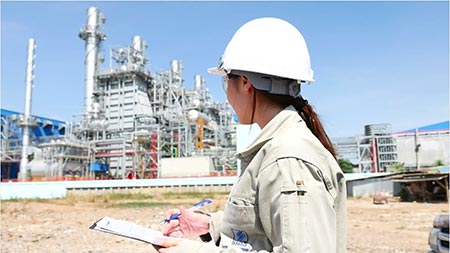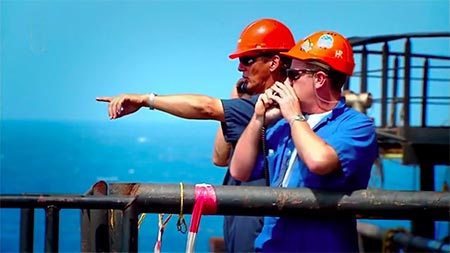What is Petroleum Engineering?
Petroleum engineering is a combination of innovation, exploration and expansion. This major provides the building block for every other profession to effectively carry out its work. Petroleum engineering overlaps with many of the engineering disciplines, such as mechanical, chemical and civil engineering.
Petroleum engineering plays a major role in shaping the modern society by providing advanced technology to keep the supply and demand of crude oil met at the national and at the global level. The petroleum industry has always enjoyed a powerful status in shaping society in the past and is expected to do so in the foreseeable future.
Few lines about B.Tech/BE Petroleum Engineering
The B.Tech/BE Petroleum Engineering is an undergraduate course that is divided into 8-semesters. The course involves designing and developing methods to extract oil and gas deposit below the earth’s surface. The course learns the innovative process of extraction such as mining, drilling, etc.
The course teaches the students about petroleum geology and geophysics which focus on the provision of a static description of the hydrocarbon reservoir rock. The course also trains the students on the estimation of the recoverable volume of this resource with a detailed understanding of the physical behaviour of oil, water and gas within the porous rock at very high pressure.
Eligibility
The students who have passed PUC or 10+2 with science background can join to B.Tech/BE courses.The students interested in joining B.Tech/BE courses are required to qualify competitive exams like CET/COMED-K/JEE with high marks in order to get merit seats in various colleges.
Admission Procedures
The students with relevant qualifications can join B.Tech/BE courses by two modes. The first one is Merit based admission and the second one is Direct admission.
Let’s discuss in detail
Merit Admission
The students who are interested to join B.Tech/BE Petroleum Engineering degree should mandatorily appear for CET/COMED-K/JEE or institutional-based entrance exams and undergo counselling to choose their desired colleges for merit seats. The engineering college allots the merit seats to the students according to their rankings and marks obtained by them in their entrance exams and marks scored in PUC or 10+2.
There are two types of counselling for the B.Tech/BE students
1. Karnataka Examination Authority (KEA) Counselling
The students who are interested to join the government engineering colleges and other engineering colleges affiliated to the government should undergo the counselling procedures of Karnataka Examination Authority (KEA).
The students who intend to join for the merit seats under government quota are required to complete the counselling procedures and join for the B.Tech/BE programmes in their chosen colleges. The Engineering colleges under the Karnataka Examination Authority (KEA) are affiliated to the Visveswaraya Technological University (VTU).
2. COMED-K Counselling
The students who are interested to join the private autonomous engineering colleges and deemed universities that are affiliated to All India Council for Technical Education (AICTE) are required to apply for the COMED-K counselling procedures. The students should qualify the COMED-K counselling procedures to get admission to their desired private autonomous engineering colleges or deemed universities for Engineering programmes.
Direct Admission
The students have another option of getting admission to B.Tech/BE Petroleum Engineering course by direct admission process. Under this mode of admission, the students are given direct admission to their desired colleges under management quota. The direct admission students enjoy many special privileges like that they are not required to apply for any entrance exam for getting admissions. They have an option to choose their desired colleges and universities and book their seats in advance even before the starting of the academic year. The students who are interested in direct admissions are required to contact Galaxy Educational Services for more details.
Course Curriculum
The B.Tech/BE Petroleum engineering students will be studying the following subjects during their course duration.
| Sl No | Subjects of Study |
|---|---|
|
1. |
Engineering Mathematics |
|
2. |
Engineering Physics |
|
3. |
Engineering Mechanics |
|
4. |
Basic Electrical Engineering |
|
5. |
Introduction to Computing |
|
6. |
Engineering Drawing |
|
7. |
Engineering Chemistry |
|
8. |
Engineering Thermodynamics |
|
9. |
Basic Electronics Engineering |
|
10. |
Introduction to Data Structure and Algorithms |
|
11. |
Mechanical Engineering |
|
12. |
Geology for Petroleum Engineers |
|
13. |
Drilling Fluids and Cement |
|
14. |
Drilling Technology |
|
15. |
Petroleum Production Operations |
|
16. |
Elements of Reservoir |
|
17. |
Surveying Theory |
|
18. |
Applied Petroleum Reservoir Engineering |
|
19. |
Sedimentary & Petroleum Geology |
|
20. |
Directional Drilling |
|
21. |
Petroleum Formulation Evaluation |
|
22. |
Advanced Numerical Methods |
|
23. |
Oil & Gas Well Testing |
|
24. |
Offshore Drilling and petroleum Production Practice |
|
25. |
Health Safety and Environment in Petroleum Industry |
|
26. |
Industrial Engineering and Management |
|
27. |
Petroleum Engineering Design |
|
28. |
Enhanced Oil Recovery Techniques |
|
29. |
Reservoir Modelling and Simulation |
|
30. |
Pipeline Engineering |
|
31. |
Petroleum Exploration-Geophysical |
|
32. |
Oil & Gas Marketing and Resources Management |
|
33. |
Transportation and Marketing of Petroleum and Petroleum Products |
|
34. |
Well Performance and Intervention |
|
35. |
Drilling System Design |
|
36. |
Oil and Gas Processing System Design |
|
37. |
Coal Bed Methane- Gas Hydrates & Share Gas Oil |
|
38. |
Advanced Offshore Engineering |
|
39. |
Deep Sea production System |
Career & Scope
There is huge demand for skilled B.Tech/BE Petroleum Engineering students. They are one the most highly paid engineers in the sector and can expect excellent career growth in the field.
Salary & Emoluments
The fresh B.Tech/BE Petroleum Engineering students will be earning around 6 lakhs to 8 lakhs per annum. The experienced professionals will be earning around 8 lakhs to 25 lakhs per annum.
Top Organisations hiring B.Tech/BE Petroleum Engineering students
Some of the top organisations hiring B.Tech/BE Petroleum Engineering students are:
- Bharat Petroleum
- Indian Oil
- Shell Petrochemicals
- Hindustan Petroleum
- Reliance Petrochemicals
- Oil and Natural Gas Corporation
- GAIL India
Placement Opportunities
Some of the job roles available are:
Drilling Engineer: The drilling engineers are responsible for planning and executing drilling operations to extract minerals, metal ores, oil and natural gas across a variety of terrains, on land and underwater. You can also find opportunities with engineering consultancies and onshore, offshore and mobile drilling contractors.
Reservoir Engineer: The reservoir engineers determine the location and amount of fuel in underground reservoirs. Often, engineers work with advanced equipment, such as computer modelling and imaging programs, to locate reserves of oil and natural gas.
Production Engineer: The production engineers work in the sphere of manufacturing, overseeing the production of goods in many industries at factories or plants. Their main job is to ensure that all products are manufactured with utmost efficiency and quality, according to planned protocols using the appropriate technology.
Chief Petroleum Engineer: The chief petroleum engineer plans and directs engineering activities of a petroleum company to develop oil fields and produce oil and gas: Formulates programs for developing oil fields, planning schedules for drilling wells and for constructing pumping units, crude-oil treating units and other production facilities.
Conclusion
The B.Tech/BE Petroleum Engineering is the most valued engineering discipline in the sector. The skilled professionals are the most highly-paid individuals in the sector and can expect excellent career growth in the field. The students with a passion toward petroleum extraction and production can join to this course




